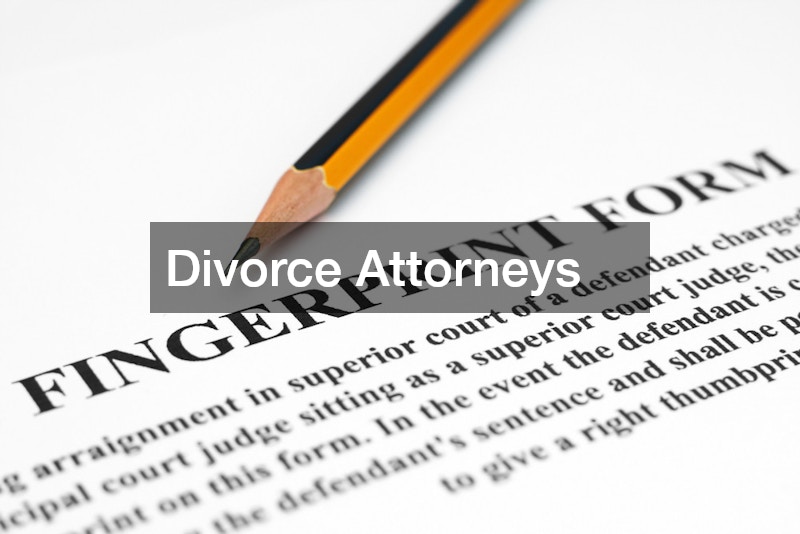Litigants are individuals, groups, or entities involved in a lawsuit or legal dispute, taking opposing sides in civil or criminal cases. The role of a litigant is central to the legal process, as these parties bring forth grievances or defenses that courts are tasked with resolving. Litigants can be plaintiffs, who initiate lawsuits by alleging that they have been wronged or harmed, or defendants, who respond to these allegations by defending their actions or disputing the claims. In some cases, litigants may also include third parties brought into the case due to a relevant stake in the outcome.
Litigants participate in the various stages of litigation, including filing motions, responding to complaints, gathering evidence, and making arguments in court. Depending on the complexity of the case, litigants may rely on legal counsel, known as litigation attorneys, who specialize in representing clients through legal proceedings. Attorneys guide litigants through the legal process, ensuring their rights are protected and building cases that present the facts and legal arguments needed to support their position. However, some litigants choose to represent themselves as “pro se” litigants, which means they forgo hiring an attorney and manage their own cases.
In the courtroom, litigants are expected to present evidence and witness testimonies supporting their claims or defenses. The court evaluates the evidence, and through procedural fairness, it strives to reach a judgment based on the rule of law. Whether through a bench trial or jury trial, litigants engage in presenting a structured argument for their position, often through cross-examinations and rebuttals aimed at weakening the opposing side’s case.
Outside of the courtroom, litigants may explore alternative dispute resolution methods, such as mediation or arbitration. These approaches can be less adversarial and more cost-effective, enabling litigants to resolve disputes without going to trial.
Ultimately, litigants play a vital role in the justice system, as their cases set precedents and clarify legal interpretations that affect future rulings. The process requires preparation, resilience, and a clear understanding of one’s legal rights, especially in complex legal disputes where outcomes significantly impact lives or businesses.
Legal disputes arise in various aspects of life, leading individuals to seek the guidance of professionals such as bankruptcy lawyers, divorce attorneys, estate attorneys, and criminal lawyers. In these legal fields, different types of litigants come forward with their grievances, seeking justice and resolution. Understanding the types of litigants in each area of law can provide valuable insights into the complexities of legal proceedings and the diverse needs of individuals.
Bankruptcy Lawyers
Bankruptcy lawyers specialize in helping individuals or businesses navigate financial difficulties and seek relief through bankruptcy proceedings. Types of litigants in this field include debtors facing overwhelming debt, creditors seeking repayment, and trustees overseeing the bankruptcy process. Each party plays a crucial role in the resolution of the bankruptcy case.
Debtors often turn to bankruptcy lawyers for advice on filing for bankruptcy and restructuring their debts. Creditors may hire legal representation to protect their interests and maximize their chances of recovering debts owed to them. Trustees work to ensure that the bankruptcy process is carried out fairly and according to the law.
Bankruptcy agencies, such as the U.S. Trustee Program, also play a vital role in overseeing bankruptcy cases and ensuring compliance with relevant laws and regulations. Types of litigants interacting with bankruptcy agencies may include individuals filing for bankruptcy, creditors challenging the discharge of debts, and bankruptcy trustees managing assets.

Divorce Attorneys
Divorce attorneys specialize in handling legal matters related to the dissolution of marriages, including child custody, spousal support, and property division. Types of litigants in divorce cases can include spouses seeking divorce, parents fighting for custody of their children, and individuals contesting financial settlements.
In divorce proceedings, parties may choose to resolve their disputes through negotiation, mediation, or litigation in court. Divorce attorneys play a crucial role in representing their clients’ interests and advocating for a fair resolution. Types of litigants can vary widely depending on the complexity of the divorce case and the issues at hand.
Emotions often run high in divorce cases, leading to contentious legal battles and protracted courtroom proceedings. Divorce attorneys work to protect their clients’ rights and assets while striving to reach amicable settlements whenever possible. Understanding the types of litigants involved in divorce cases can shed light on the challenges and dynamics of family law disputes.
Estate Attorneys
Estate attorneys specialize in matters related to estate planning, wills, trusts, and probate. Types of litigants in estate law can include testators creating wills, beneficiaries claiming inheritance, and executors administering estates. Each party has a unique role in the transfer of assets and the resolution of estate disputes.
Testators often seek the expertise of estate attorneys to create comprehensive estate plans that reflect their wishes and protect their assets. Beneficiaries may hire legal representation to contest the validity of a will or challenge the distribution of assets. Executors work to carry out the terms of the will and ensure that the estate is settled according to the law.
Estate disputes can arise when family members or other interested parties disagree on matters such as inheritance, asset distribution, or the validity of a will. Estate attorneys play a crucial role in resolving conflicts and guiding clients through the complexities of estate law. Understanding the types of litigants involved in estate cases is essential for navigating the intricate legal landscape of inheritance and probate.

Medical Malpractice
Medical malpractice cases involve allegations of negligence or misconduct by healthcare providers, leading to harm or injury to patients. Types of litigants in medical malpractice lawsuits can include patients seeking compensation for medical errors, healthcare professionals defending against allegations, and insurance companies handling claims. Each party plays a crucial role in the resolution of medical malpractice disputes.
Patients who have suffered harm due to medical negligence may seek legal recourse by filing a medical malpractice lawsuit. They may allege that a healthcare provider failed to meet the standard of care, resulting in injury or adverse outcomes. Healthcare professionals facing malpractice claims may hire defense attorneys to protect their reputation and livelihood.
Insurance companies also play a significant role in medical malpractice cases by providing coverage for healthcare providers and handling claims on their behalf. They may conduct investigations, negotiate settlements, or defend against claims in court. Understanding the types of litigants involved in medical malpractice cases is essential for grasping the complexities of healthcare law and patient rights.
PFAS Law Firms
Per- and polyfluoroalkyl substances (PFAS) are a group of man-made chemicals used in a variety of consumer products and industrial processes. PFAS law firms specialize in handling environmental contamination cases involving PFAS pollution and toxic exposure. Types of litigants in PFAS lawsuits can include communities impacted by PFAS contamination, government agencies pursuing enforcement actions, and corporations facing liability for PFAS releases.
Communities affected by PFAS pollution may seek legal representation to hold polluters accountable for environmental damage and health risks. They may demand compensation for property damage, health monitoring, or cleanup costs related to PFAS contamination. Government agencies, such as the EPA or state environmental departments, may take legal action against companies responsible for PFAS pollution to enforce environmental laws.
Corporations that manufacture or use PFAS chemicals may face lawsuits alleging liability for environmental harm or personal injuries caused by PFAS exposure. They may hire defense attorneys to defend against claims, negotiate settlements, or litigate in court. PFAS law firms play a crucial role in advocating for the rights of affected communities and holding polluters accountable for PFAS contamination.

Aviation Accident Law Firm
Aviation accident law firms specialize in handling legal matters related to airplane crashes, injuries, and fatalities. Types of litigants in aviation accident cases can include passengers injured in plane crashes, families of victims seeking compensation for wrongful death, and airlines defending against liability claims. Each party has distinct legal rights and responsibilities in aviation accident litigation.
Passengers who have been injured in aviation accidents may pursue legal action against airlines, aircraft manufacturers, or other parties responsible for the crash. They may seek compensation for medical expenses, lost income, pain and suffering, and other damages resulting from the accident. Families of victims killed in plane crashes may file wrongful death lawsuits to hold negligent parties accountable.
Airlines and aviation companies facing liability claims in aviation accidents may work with defense counsel to investigate the causes of the crash and defend against allegations of negligence or misconduct. They may seek to minimize their financial exposure and protect their reputation in the aftermath of a catastrophic accident. Understanding the types of litigants involved in aviation accident cases is crucial for navigating the complex legal terrain of air travel and aviation safety.
Criminal Lawyers
Criminal lawyers specialize in defending individuals accused of crimes and navigating the criminal justice system. Types of litigants in criminal cases can include defendants facing criminal charges, prosecutors pursuing convictions, and judges overseeing the legal proceedings. Each party plays a critical role in upholding the principles of justice and due process in criminal law.
Defendants accused of crimes may hire criminal defense attorneys to represent them in court, protect their legal rights, and mount a defense against the charges. They may face penalties such as fines, probation, or incarceration if found guilty of criminal offenses. Prosecutors work on behalf of the government to investigate crimes, gather evidence, and prosecute defendants in criminal cases.
Judges preside over criminal trials, ensuring that legal procedures are followed, evidence is presented fairly, and verdicts are rendered impartially. They may impose sentences, issue rulings on legal motions, or oversee plea negotiations in criminal cases. Understanding the roles of different types of litigants in criminal law is essential for promoting justice and safeguarding the rights of defendants in the legal system.

Landlord Lawyer
Landlord lawyers specialize in handling legal matters related to landlord-tenant relationships, rental agreements, and property disputes. Types of litigants in landlord-tenant cases can include landlords seeking to enforce lease terms, tenants challenging eviction proceedings, and property managers managing rental properties. Each party has unique rights and obligations under landlord-tenant law.
Landlords may hire legal representation to draft lease agreements, evict non-compliant tenants, or resolve disputes over rent payments or property maintenance. They must comply with state and local landlord-tenant laws governing issues such as security deposits, habitability standards, and eviction procedures. Tenants facing eviction or lease violations may seek assistance from tenant advocacy groups or legal aid organizations.
Property managers play an important role in overseeing rental properties, enforcing lease terms, and handling tenant complaints and inquiries. They must balance the interests of landlords and tenants while ensuring compliance with rental agreements and housing regulations. Landlord lawyers provide guidance and representation to landlords, tenants, and property managers in navigating the complexities of landlord-tenant relationships.
Drunk Driving Attorney
Drunk driving attorneys specialize in defending individuals charged with driving under the influence (DUI) or driving while intoxicated (DWI) offenses. Types of litigants in drunk driving cases can include defendants arrested for DUI/DWI, law enforcement officers conducting sobriety tests, and prosecutors pursuing convictions for impaired driving. Each party has distinct roles and interests in drunk driving legal proceedings.
Defendants accused of DUI/DWI offenses may face criminal charges, license suspension, and other penalties if convicted of impaired driving. They may hire drunk driving attorneys to challenge the evidence, negotiate plea agreements, and defend their legal rights in court. Law enforcement officers play a critical role in enforcing DUI/DWI laws, conducting traffic stops, and administering field sobriety tests to suspected impaired drivers.
Prosecutors work to hold individuals accountable for DUI/DWI offenses by presenting evidence, proving guilt beyond a reasonable doubt, and seeking appropriate penalties for impaired driving. They may negotiate plea deals, litigate in court, or pursue alternative sentencing options for DUI/DWI defendants. Understanding the roles of different types of litigants in drunk driving cases is essential for promoting road safety and deterring impaired driving behavior.
In conclusion, the legal field encompasses a wide range of specialties, each with unique types of litigants seeking resolution and justice. From bankruptcy lawyers helping debtors restructure their finances to criminal lawyers defending individuals accused of crimes, legal professionals play a crucial role in upholding the rule of law and safeguarding the rights of litigants. Understanding the diverse needs and perspectives of litigants in various legal fields is essential for promoting fairness, equity, and access to justice in the legal system.
